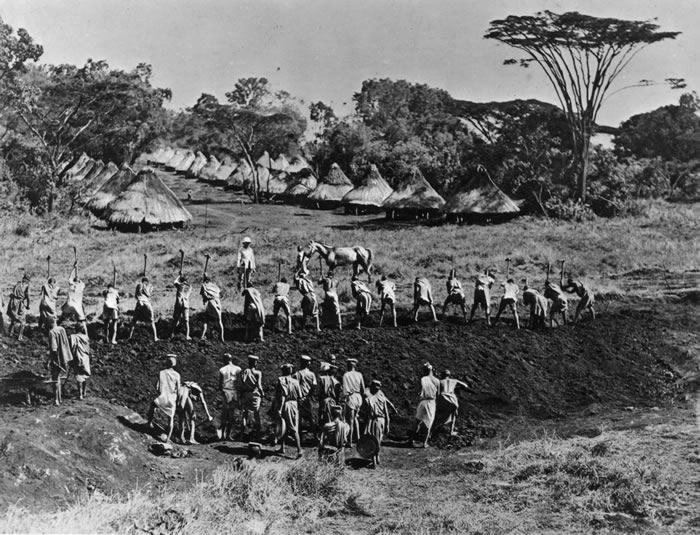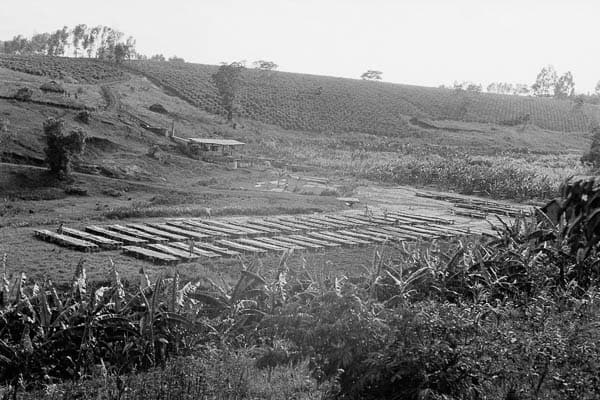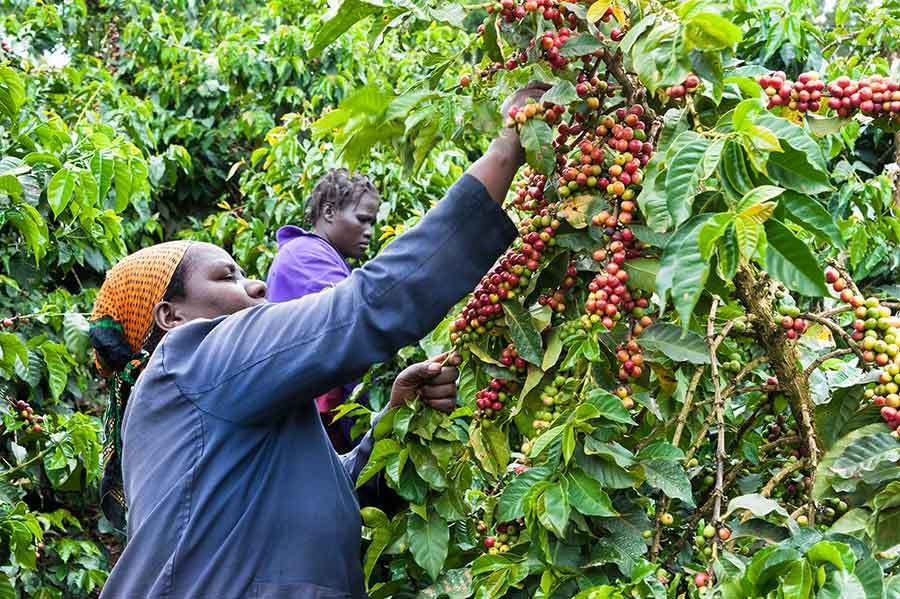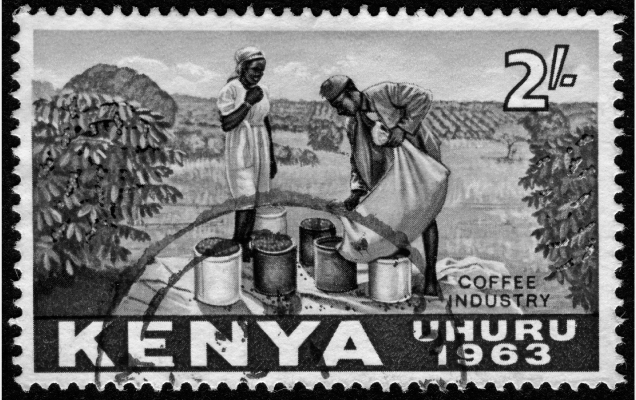The birthplace of coffee is relatively close to Kenya but getting it there was not an easy task and full of bloodshed. The Arabs who controlled coffee enslaved thousands of Kenyan’s where they worked on the coffee plantations in Kenya and Arabia. This was followed by the British settlers around 1900 who quickly assumed control over the country which led to more bloodshed.

In the first part of the 20th century, the interior was settled by British and European farmers who became rich by farming coffee on the backs of the Kenyan workers. By the 1930s the farmers’ powers had become very strong. Even with over 1 million Kikuyu tribe members calling it home they had now real land claims according to the Europeans. To protect their interest the wealthy Europeans banned them from growing coffee, introduced a hut tax and gave them less and less for their labour. The Kikuyu were forced to leave their land and go to the cities in order to survive. This legal slavery of the population continued until the century until the British relinquished control in 1960. Despite all this bloodshed and slavery Kenya coffee has flourished and is among one of the finest cups in the world.

All Kenya coffee grown is Arabica coffee grown on the rich volcanic soil that is found in the highlands of the country. Today around 250,000 Kenyans are employed in the production of coffee. Most are produced by small landholders that are members of cooperatives that process their own coffee. Still, even with this Kenya coffee’s speciality status Kenya coffee farmers still remain among the poorest in the world. In 2001 a farmer producing 1,007 kg crop would only earn $25 for his labour, that same coffee is available at speciality stores for $10 + per pound.
Recently Kenya farmers have introduced the Ruiru 11 hybrid plant and it is causing concern amongst true Kenya coffee lovers. This is because it may lack the traditional Kenya coffee attributes that coffee aficionados love. The Kenya Coffee Board is trying to promote Ruiru 11 as an alternative to the farmers but their efforts are overshadowed by the rumours that it tastes like a low-grade coffee from a different country. History will have to be the judge to see who is correct.

Kenya coffee has a bright acidity and a wonderful sweetness with a dry winy aftertaste. A really good Kenya coffee will also have a black-current flavor and aroma. Some of the worlds finest coffees come from Kenya and as a single origin coffee it wins praise at the cupping table. Kenya has this level of quality through a government-run system that offers rewards to farmers for producing better quality coffee. This policy has lead to steady improvements and consistent improvements in the cups quality. Each lot of Kenya coffee, if it is from a large farm or a small co-op has to undergo rigorous testing for quality by the Coffee Board of Kenya.




